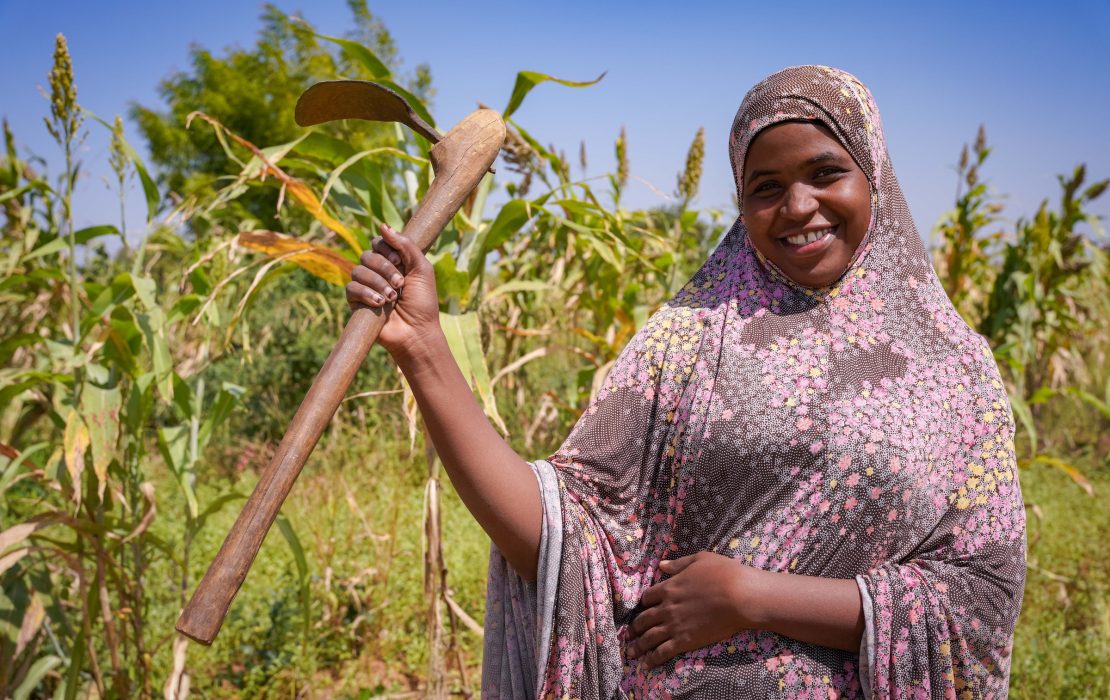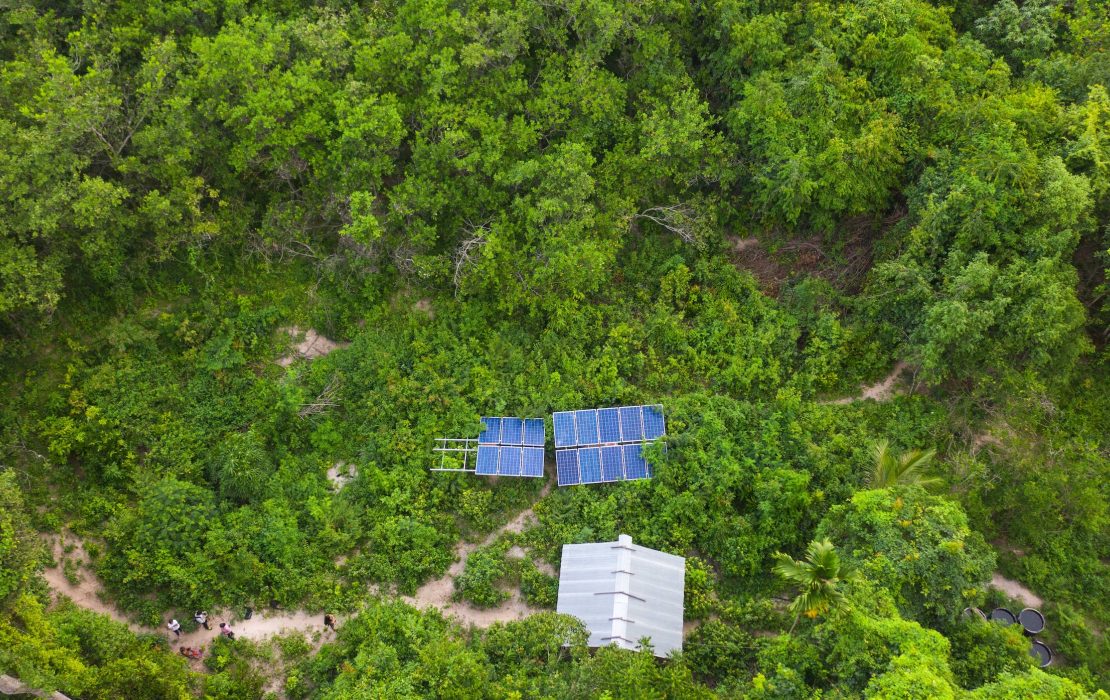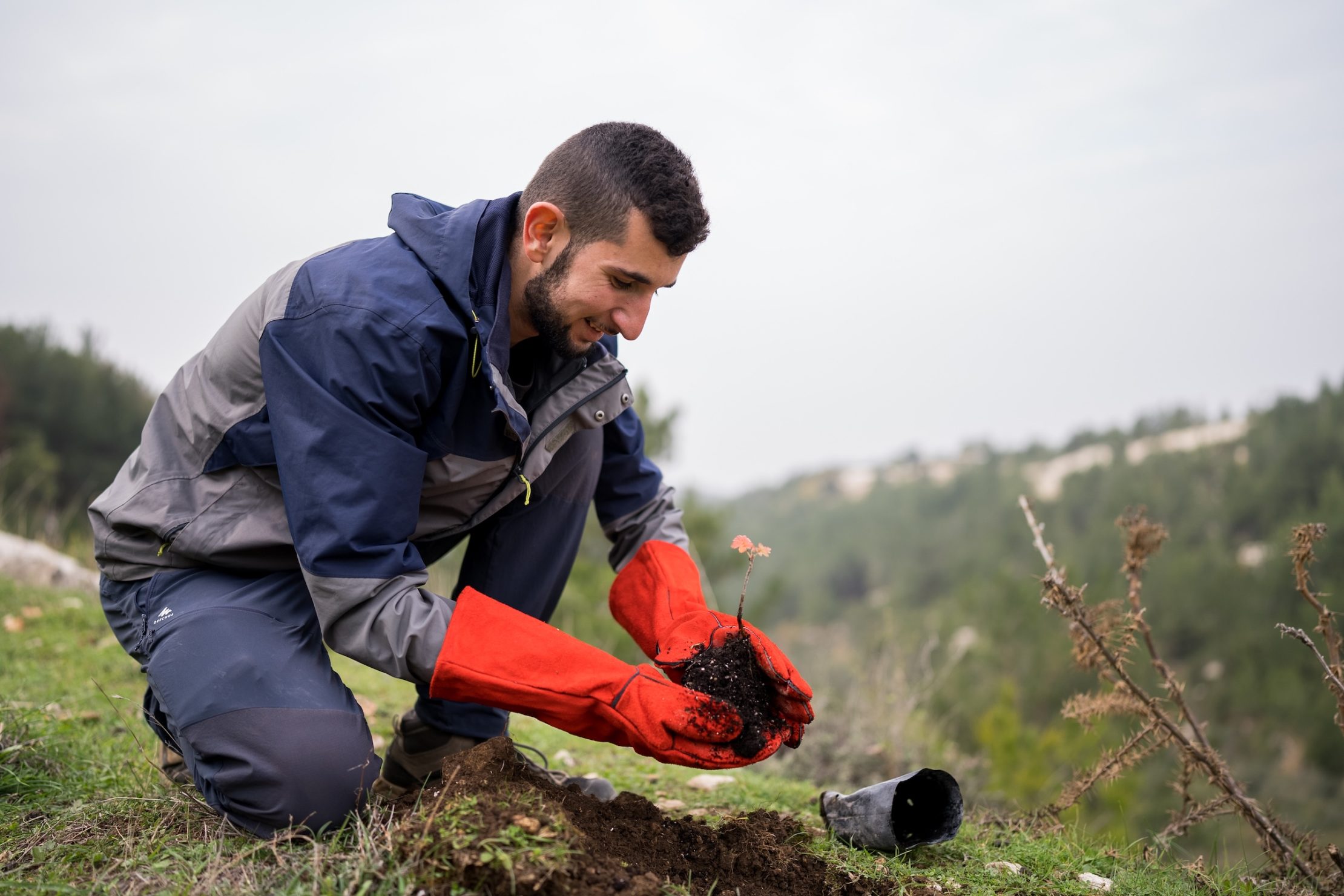
Photo: Fouad Choufany / UNDP Lebanon
Lebanon is a highly urbanized and densely populated lower middle-income country on the eastern shore of the Mediterranean Sea. In recent times, the country has faced a series of economic and humanitarian crises that have led to large budget deficits and made life more expensive for its citizens.
Simultaneously, Lebanon is also dealing with a series of intensifying climate change impacts. The country is vulnerable to heat waves, droughts, wildfires, and storms. Unpredictable extreme weather affects both human activities and agricultural output, as well as the fragile natural habitats and biodiversity that support them. Moreover, the country’s 225 km coastline is stacked with critical infrastructure and fragile ecosystems that are at risk from sea level rise, coastal erosion, and saltwater intrusion.
Like other countries in the Arab States region, Lebanon relies heavily on food and energy imports, which leaves its citizens and businesses ever more vulnerable to external shocks and crises. Since climate change is a threat multiplier for the country’s current socio-economic challenges, the cost of climate inaction could reach, according to some estimates, as high as US$80.7 billion in 2040.
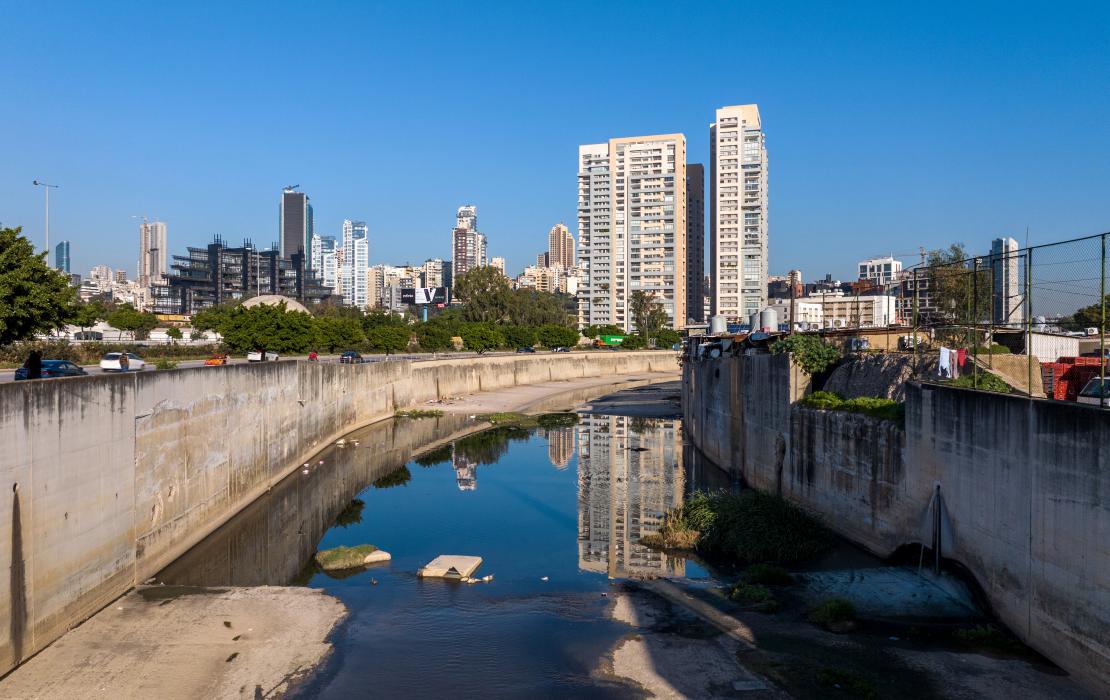
Photos: Fouad Choufany/UNDP Lebanon
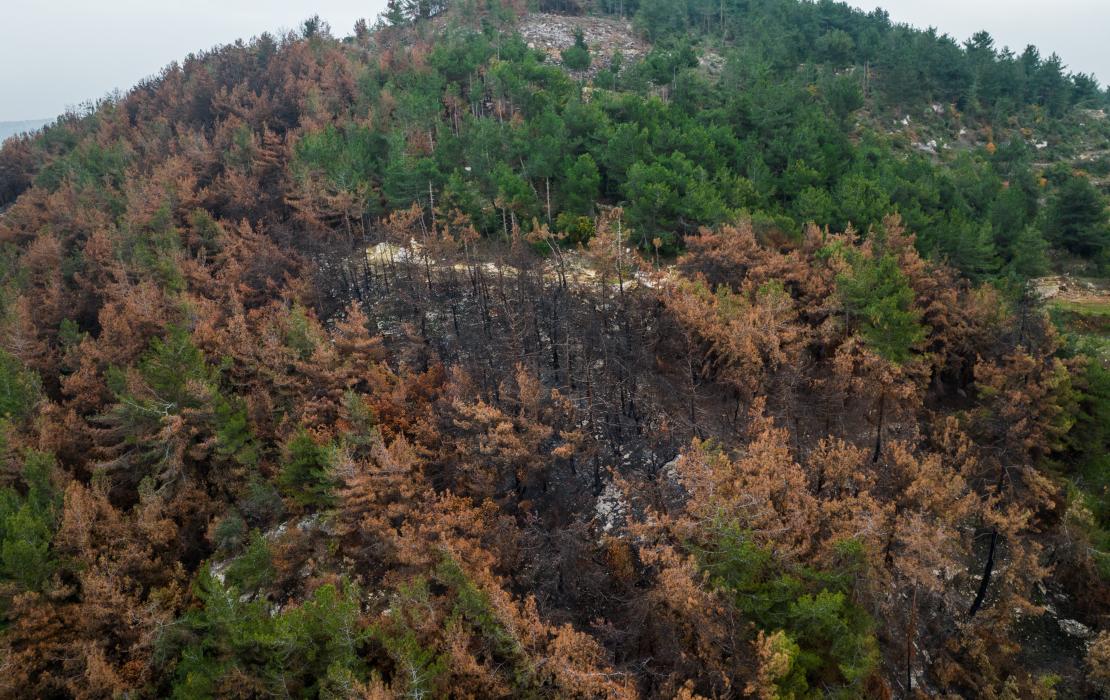
Despite the turmoil of the past few years, Lebanon revised its Nationally Determined Contributions (NDC) to be more ambitious, with support from UNDP’s Climate Promise. In the updated NDC, submitted in March 2021, the country pledged to unconditionally reduce greenhouse gas emissions (GHG) by 20 percent compared to a business-as-usual scenario and meet 18 percent of its electricity demand and 11 percent of its heating demand from renewable sources by 2030. If international support were to be provided, Lebanon would raise its emissions reduction target to 31 percent and the renewable electricity and heating targets to 30 percent and 16.5 percent respectively.
The NDC also sets up a comprehensive list of adaptation priorities for the country. These include strengthening the resilience of the agricultural sector, promoting the sustainable use of natural resources, restoring degraded landscapes, protecting terrestrial and marine biodiversity, reducing the vulnerability of coastal zones, ensuring public health safety, and applying nature-based solutions as a first line of defense against climate change impacts.
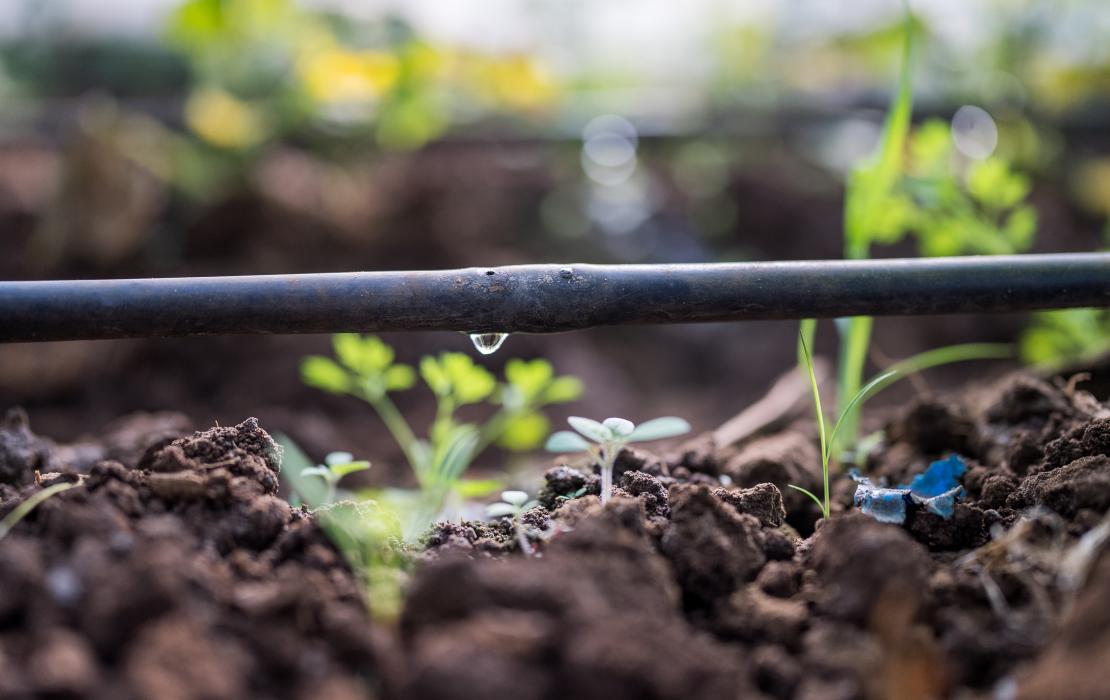
Photos: Fouad Choufany/UNDP Lebanon
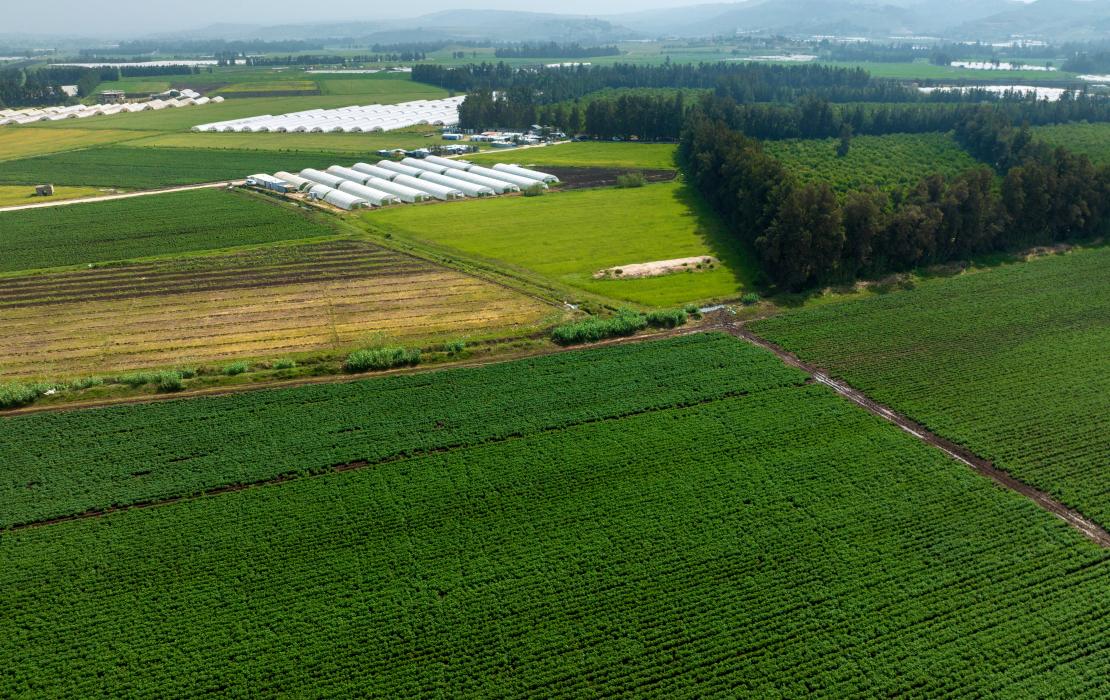
To reach these ambitious goals, the country must now pursue a series of policy and fiscal reforms in crucial sectors such as energy, infrastructure, land and water management, and pollution. These policies would not only contribute to NDC implementation, but they could also help the country with its economic recovery efforts following a recent string of crises including the port of Beirut explosion, the COVID-19 pandemic, and the challenges brought on by hosting over 1 million refugees fleeing the war in Syria, as well as long-standing debt burdens.
Since the achievement of the NDC depends on the cooperation of all national stakeholders and the support of the international community, inclusion and transparency are two of the most important considerations for Lebanon’s climate action. The country is therefore looking to ensure that climate action benefits the most vulnerable groups, including by applying a gender lens to its policies and interventions. Lebanon is also one of the 12 developing countries who have submitted four Biennial Update Reports, and is now focusing on aligning its NDC implementation with the Enhanced Transparency Framework under the Paris Agreement to build trust and confidence with international partners about real progress on the ground.
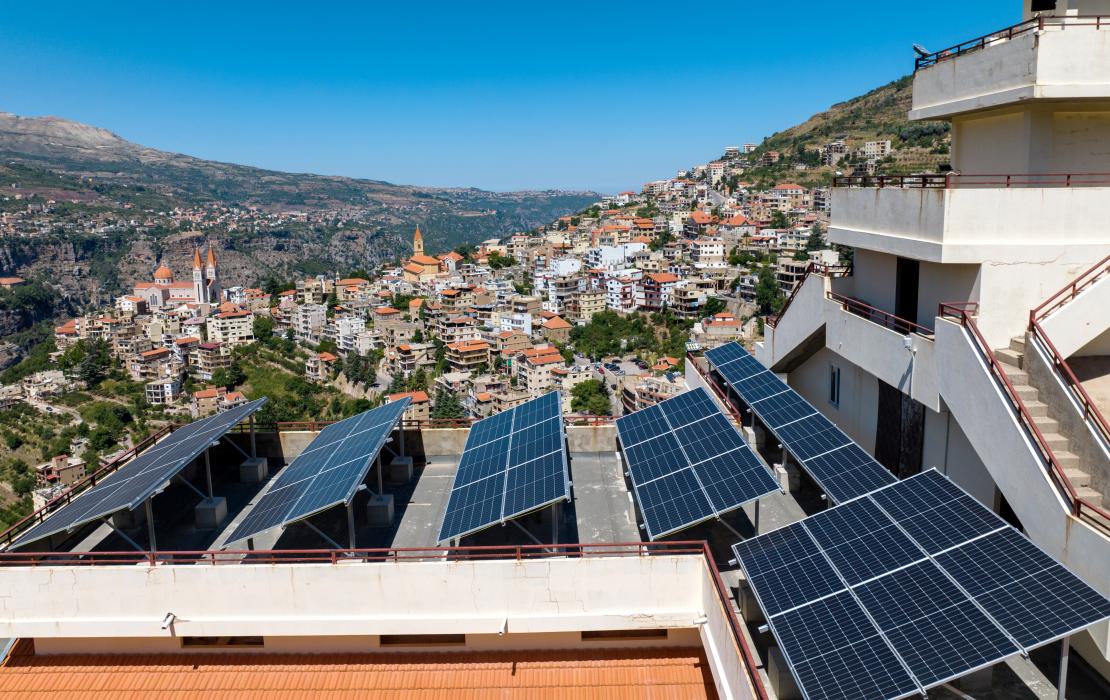
Photo: Fouad Choufany/UNDP Lebanon
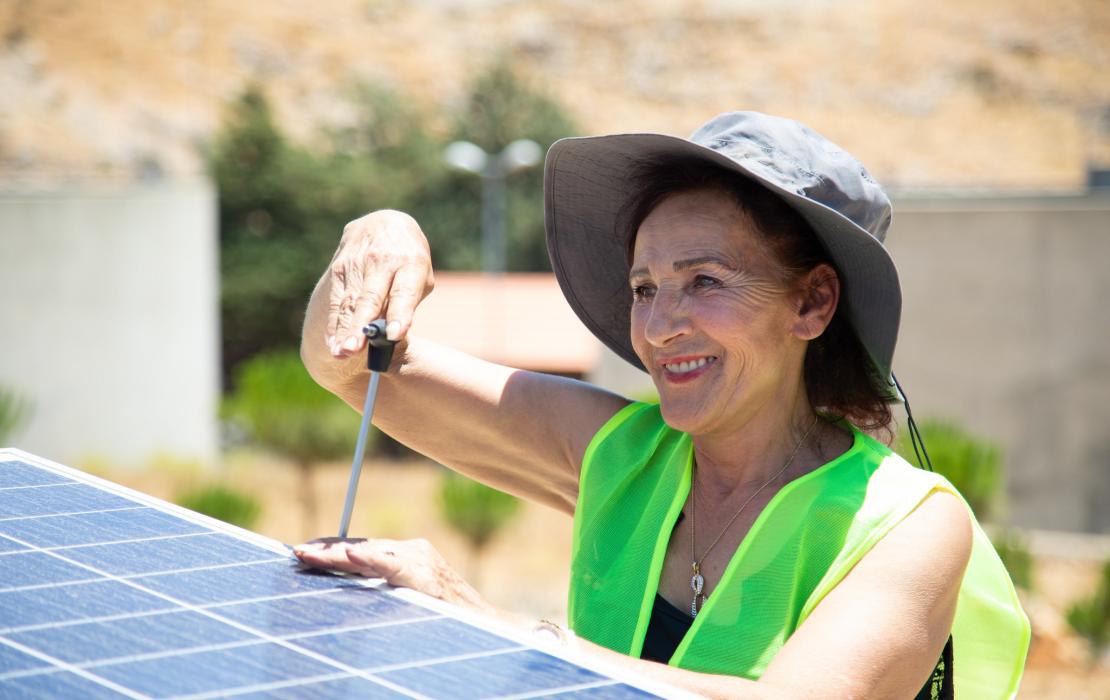
Photo: Rana Sweidan/UNDP Lebanon
In addition to the NDC, Lebanon has developed several national development plans aiming at supporting economic and social development and attracting foreign investment. A climate-proofing analysis of three of these plans – the three-year Financial Recovery Plan, the Lebanon Economic Vision, and the Capital Investment Programme – was conducted, with support from UNDP’s Climate Promise. One of the major findings was that every $1 invested in climate-proofing through mitigation and adaptation measures leads to savings of $3.20 from improvements in air quality, health benefits, avoided climate change impacts, and reduced loss of biodiversity.
Lebanon’s journey to a green, inclusive, and resilient society relies on adequate and predictable climate finance and investments and the enhanced capacity and strengthened governance of Lebanese institutions. The country needs international support for its NDC in the form of climate finance, technology transfer, capacity sharing, and technical assistance.
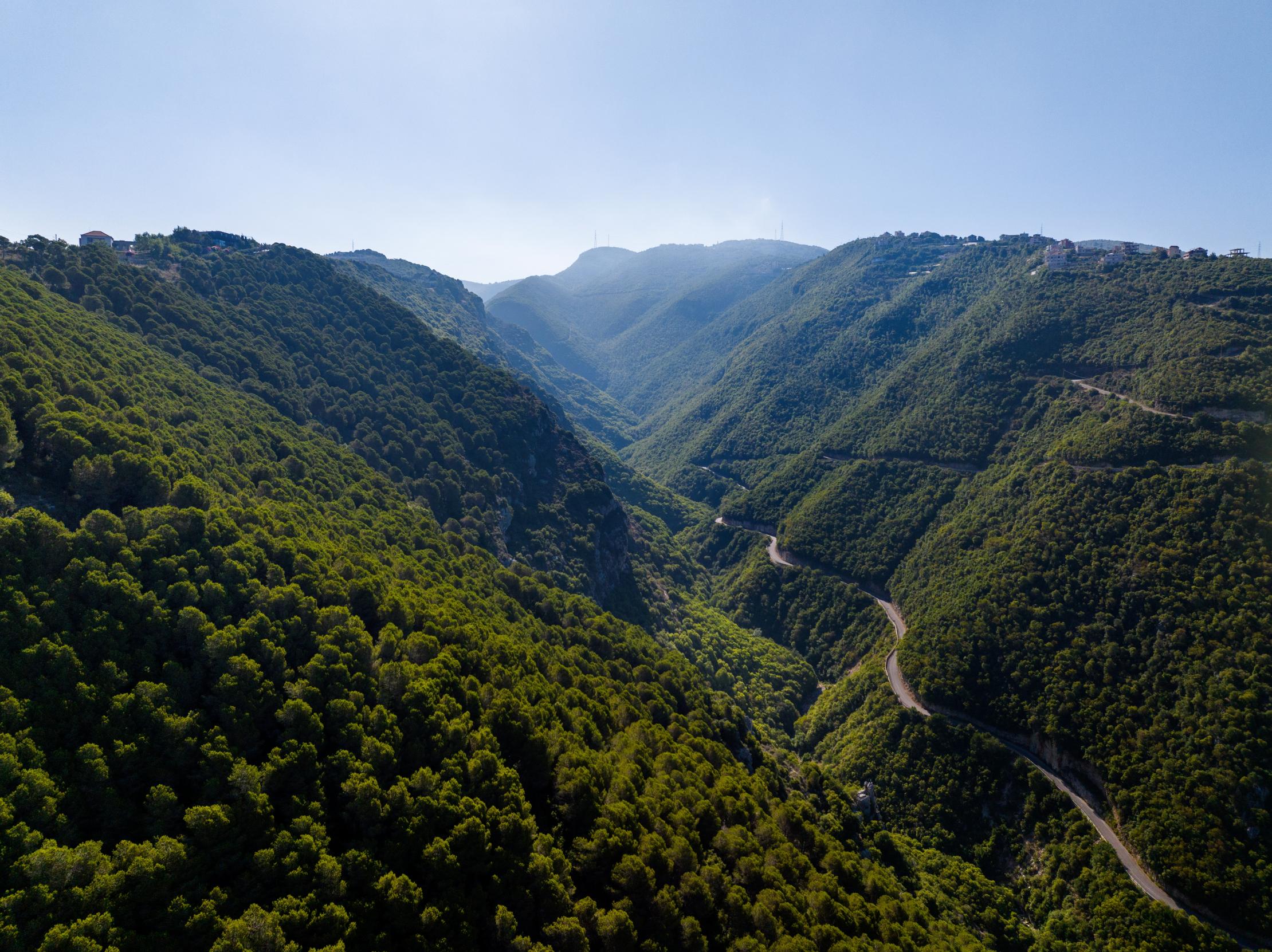
Photo: Fouad Choufany/UNDP Lebanon
As part of efforts to accelerate investments, in 2023, Lebanon is launching the Lebanon Green Investment Facility (LGIF), with support from UNDP. The LGIF will have a technical assistance unit and an investment fund. It will work to enhance the delivery of climate finance by channeling private investments and promoting blended finance mechanisms such as concessional loans, guarantees, and grants from international financial institutions and development banks. By increasing investments in climate-friendly projects and facilitating strong coordination between donors and investors, the LGIF aims to substantially contribute to the implementation of Lebanon’s NDC.
That is good news because many sectors in Lebanon require timely investments in climate action, including energy, transportation, land and waste management, and inclusion. With support from donors and UNDP, different initiatives have already sown seeds of progress over the past few years.
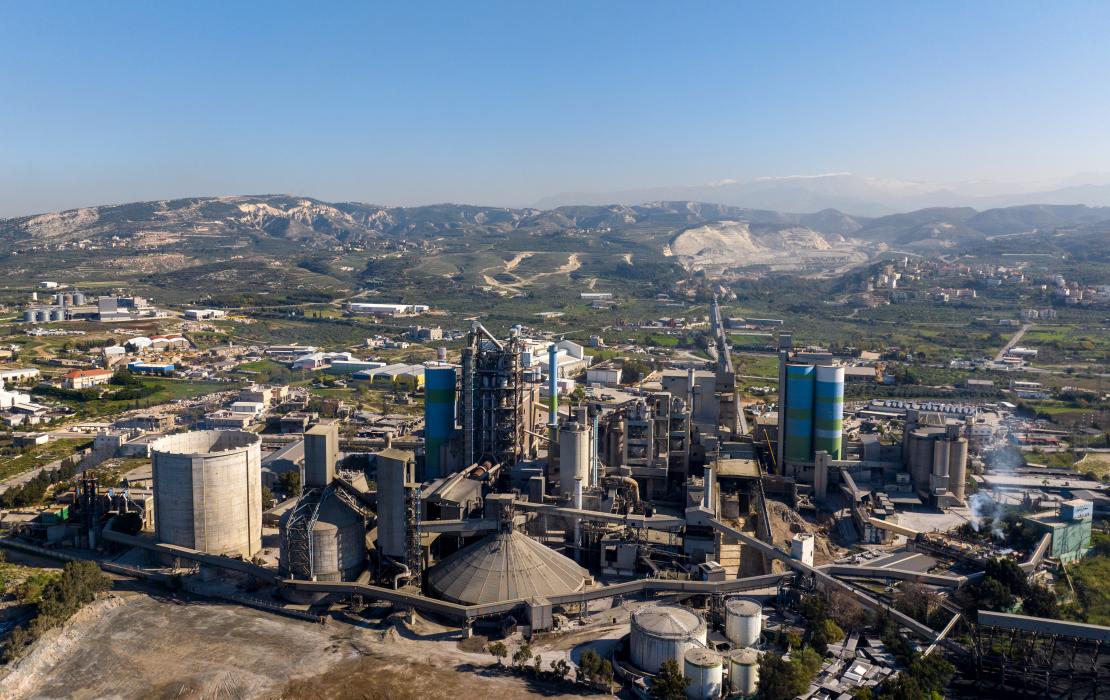
Photos: Fouad Choufany/UNDP Lebanon
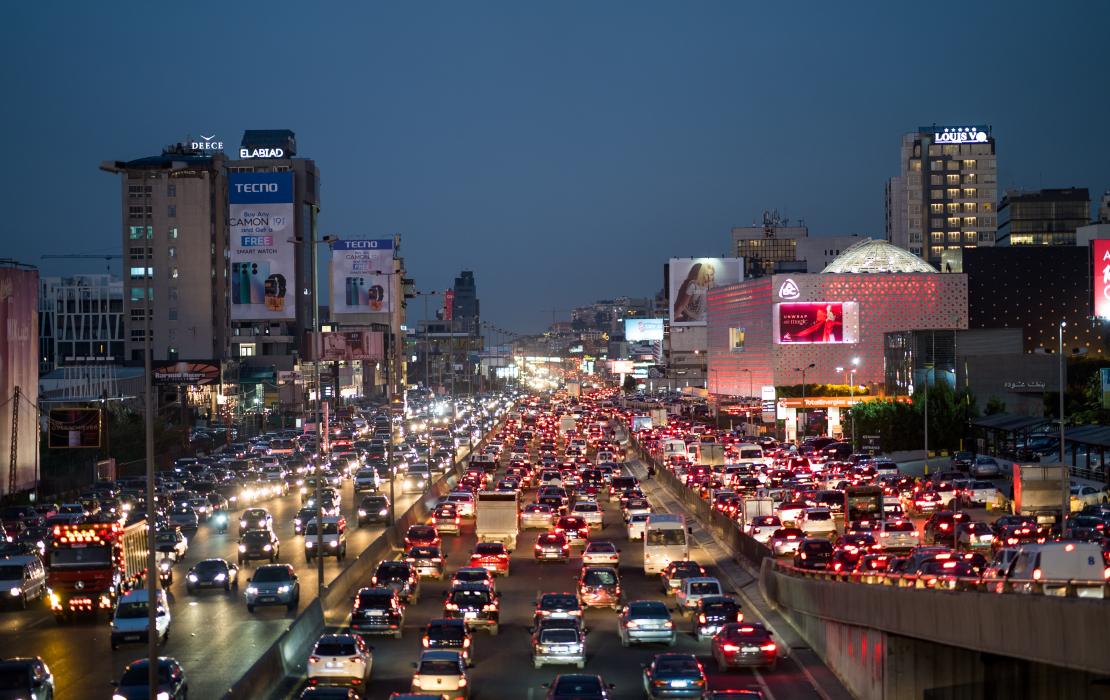
For example, to accelerate the green energy transition, UNDP’s CEDRO project has contributed – with funds provided by different donors, including the European Union – to more than 150 renewable energy projects, with a total capacity of 19.37 MW, leading to a reduction of 6,657 tons of carbon dioxide per year. UNDP has also supported Lebanon to develop a National Cooling Plan that helps phase out emissions of high Global Warming Potential (GWP) refrigerants and foam blowing agents (HFCs), in line with the Montreal Protocol.
In the transportation sector, which is the second largest consumer of energy in Lebanon and contributes 23 percent of the country’s GHG emissions, a UNDP-supported initiative funded by the Global Environment Facility (GEF) is helping remove policy, institutional, and technical barriers to the adoption of electric vehicles, green public transport, and e-mobility.
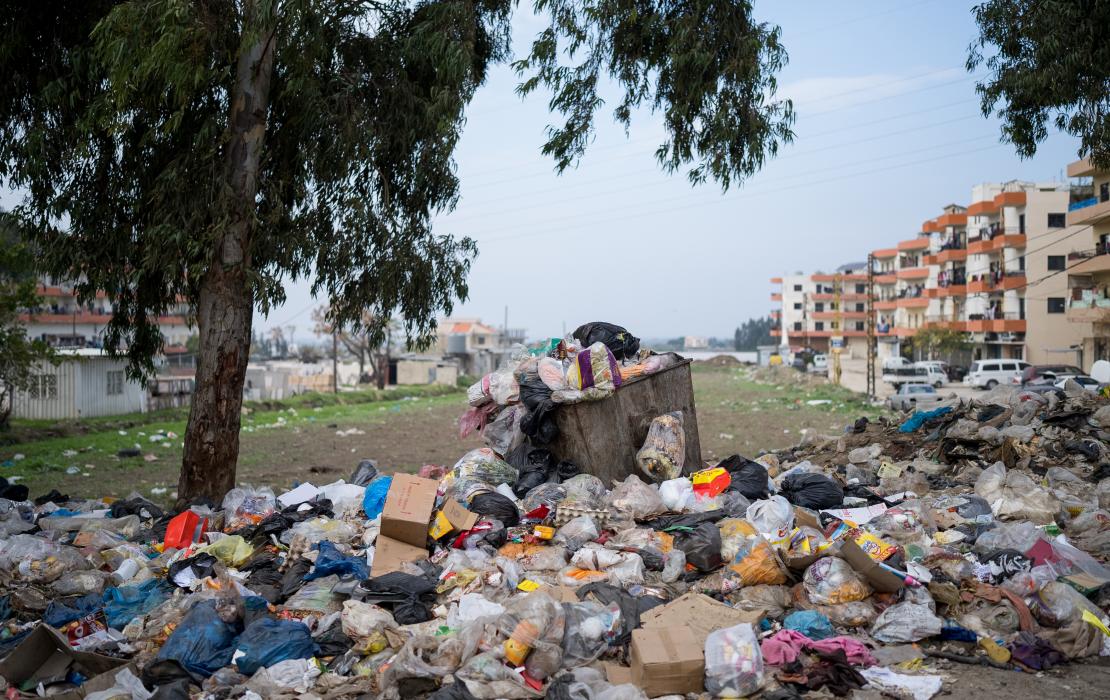
Photos: Fouad Choufany/UNDP Lebanon
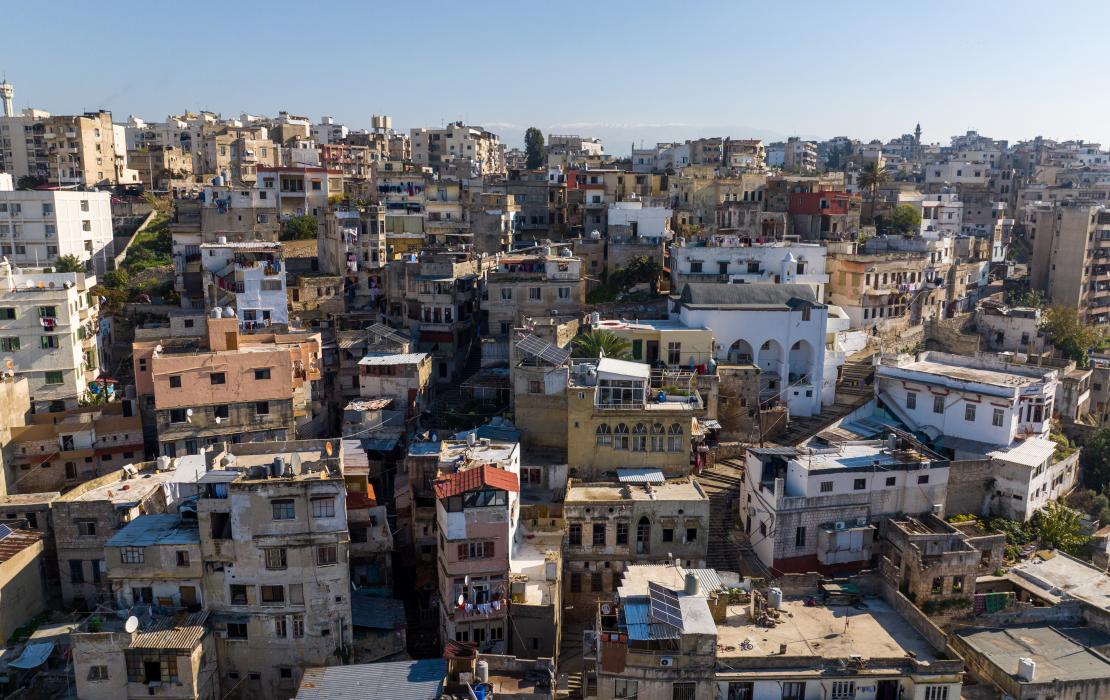
Waste management is another area where action must be taken. Across the country, only 20 percent of waste is recovered, with the rest going to landfills or dumpsites. UNDP has worked on several initiatives to close and rehabilitate uncontrolled and unsanitary dumpsites and construct proper landfills and waste management facilities. It has also helped strengthen the capacities of public authorities to improve national waste management practices. These projects were supported by a variety of donors including the governments of Japan, the Netherlands, Germany, Italy, and Kuwait.
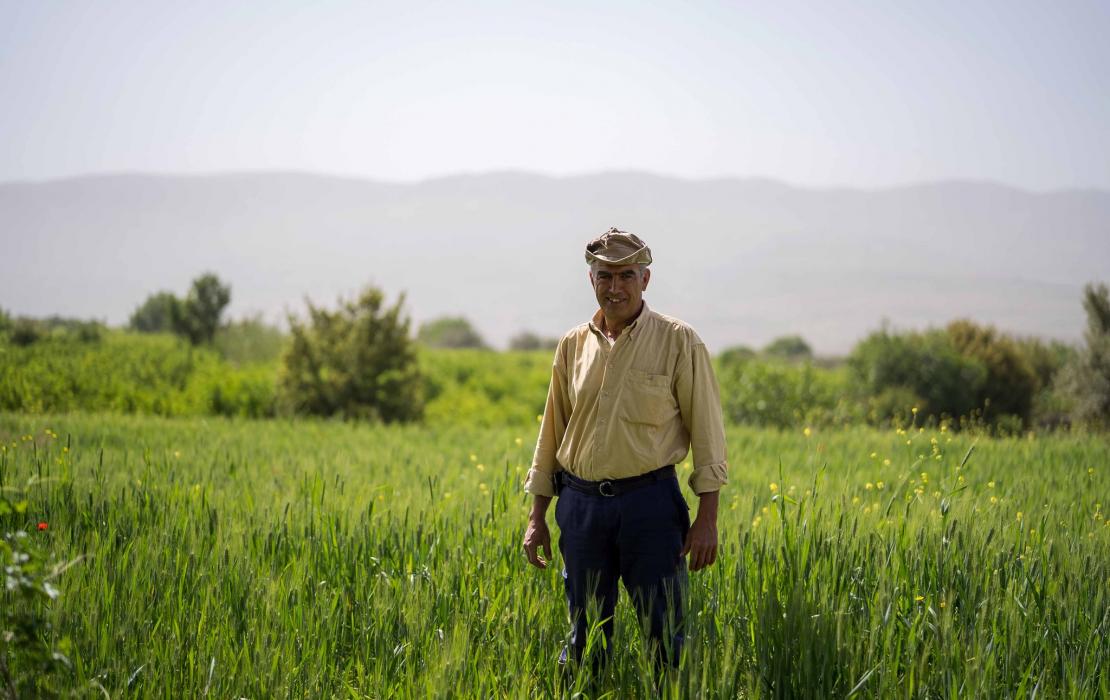
Photos: Fouad Choufany/UNDP Lebanon
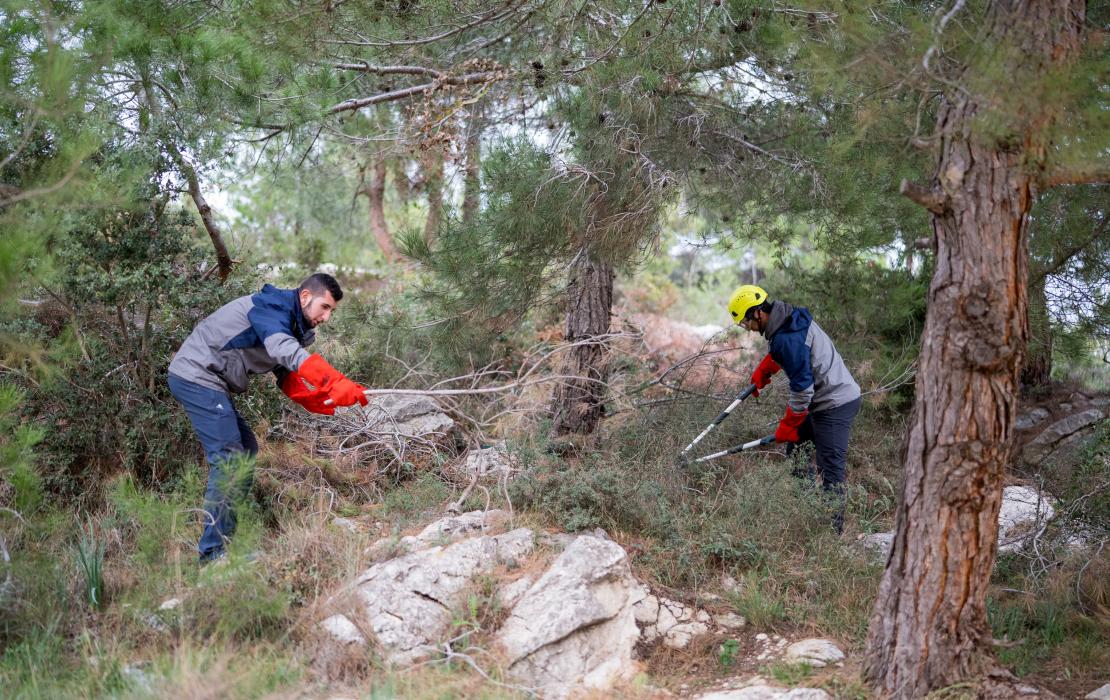
On land management, Lebanon needs urgent action as current practices continue to erode the country’s natural resource base, especially soil, water, and green cover. Land degradation has been flagged as a serious environmental problem in the country, with some estimates, which are likely incomplete, pointing to losses of $132 million yearly. An initiative led by UNDP and funded by the GEF is piloting solutions to rehabilitate degraded lands in mountainous areas by restoring forests and strengthening legal frameworks and financing mechanisms for land management.
Lebanon has also been seeking to improve the gender-responsiveness of its climate policies and climate action. With the help of the UNDP’s NDC Support Programme, a gender analysis was carried out to provide specific entry points to increase the gender-responsiveness of climate change policies and strategies, including the country’s NDC finance strategy and its long-term low-emission development strategy.
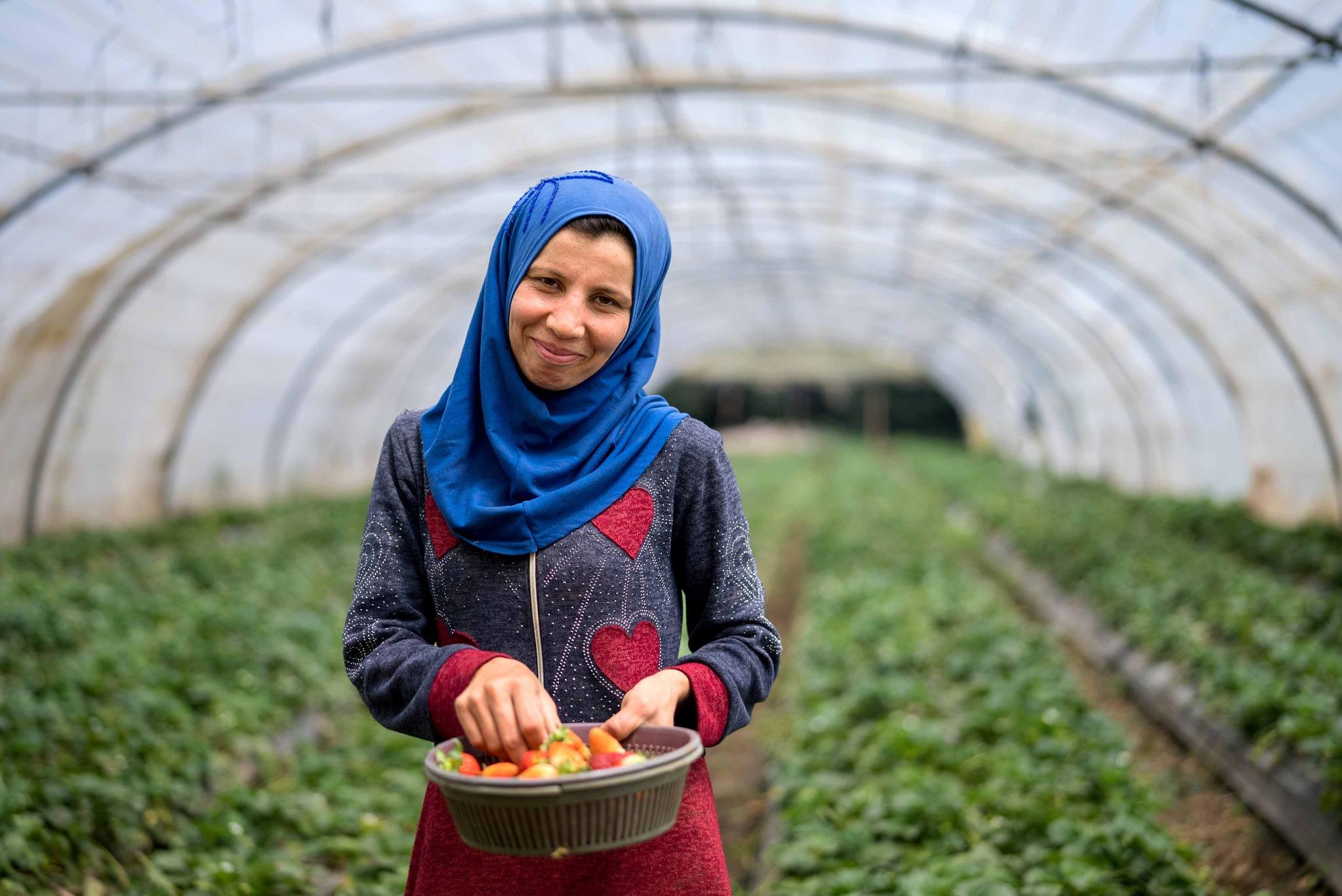
Photo: UNDP Lebanon
Despite the progress being made, Lebanon’s path to a green future is not ensured. There is still a risk that the country’s development agenda will not veer towards climate action and green growth. For that to be avoided, climate finance and investments are needed to implement the pathways to a low-carbon, climate-resilient future outlined in the NDC. Providing that investment, from private, public, and international sources, will not only help the country deliver on its climate targets, but will also deliver many benefits to its citizens, by reducing poverty and vulnerability, creating new job opportunities, enhancing food security, improving air quality and health, protecting biodiversity, and boosting economic growth. This is the future the country deserves.
If you found this piece useful, check out how the Arab States region is scaling up on climate action.
